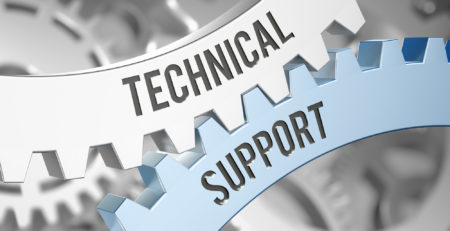IoT (Internet of Things): Connecting the World
In the rapidly evolving landscape of technology, the Internet of Things (IoT) has emerged as a revolutionary concept that is transforming the way we live and work. This article explores the profound relationship between IoT and Information Technology (IT) and how it is reshaping various aspects of the IT industry.
1. Enhancing Connectivity and Communication
IoT has revolutionized the way devices and systems communicate with each other, creating a highly connected ecosystem. This connectivity has tremendous implications for IT, as it requires robust networks, data management systems, and security protocols to facilitate seamless communication between IoT devices. IT professionals play a crucial role in developing and managing these intricate systems, ensuring efficient data transmission and secure connectivity.
2. Big Data and Analytics
The proliferation of IoT devices has resulted in an unprecedented amount of data being generated from numerous sources. This data holds immense value in various domains, including healthcare, manufacturing, transportation, and more. IT plays a vital role in harnessing this data by leveraging advanced analytics tools and techniques. By extracting meaningful insights from IoT-generated data, businesses can optimize their operations, make informed decisions, and gain a competitive edge.
3. Security Challenges and Solutions
With the increasing number of connected devices, ensuring robust security within the IoT ecosystem has become a paramount concern. IT professionals are at the forefront of addressing these security challenges. They design and implement stringent security measures, such as encryption protocols, secure authentication, and network monitoring, to safeguard IoT devices and the sensitive data they generate. Additionally, IT experts work tirelessly to identify vulnerabilities and develop solutions to counter potential cyber threats targeting IoT infrastructure.
4. Cloud Computing and IoT
Cloud computing plays a significant role in supporting the growth of IoT. It provides the necessary infrastructure and scalability to manage the massive volume of data generated by IoT devices. Through cloud-based platforms, IT professionals can efficiently store, process, and analyze IoT data while ensuring its availability and accessibility. The seamless integration of IoT and cloud computing enables businesses to harness the full potential of IoT technology while reducing infrastructure costs and improving scalability.
5. Automation and Efficiency
IoT technology empowers organizations to automate processes, monitor operations remotely, and optimize resource utilization. IT professionals are responsible for designing and implementing IoT-based solutions that streamline operations, enhance productivity, and minimize human intervention. By leveraging IoT, businesses can achieve greater efficiency, reduce operational costs, and deliver enhanced user experiences.
The Internet of Things has become a catalyst for digital transformation, and its impact is profound. As IoT continues to expand its reach, IT professionals will play a critical role in managing the complexities of IoT infrastructure, ensuring data security, and leveraging the power of analytics to unlock the full potential of IoT-generated data. Embracing the opportunities presented by IoT and staying abreast of its advancements will be vital to thrive in this era of connected technology.











Leave a Reply